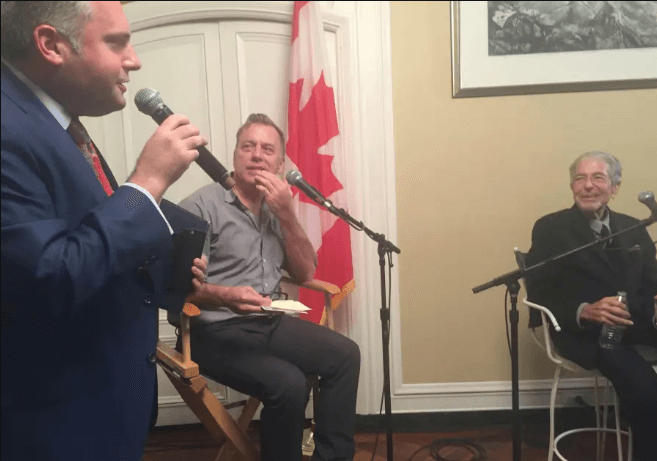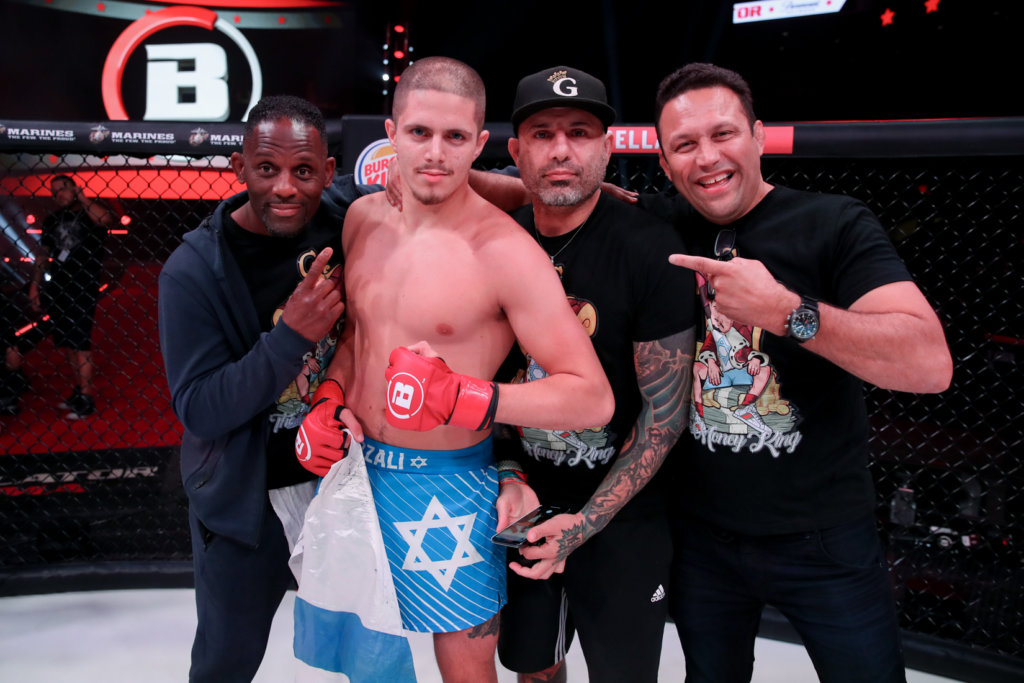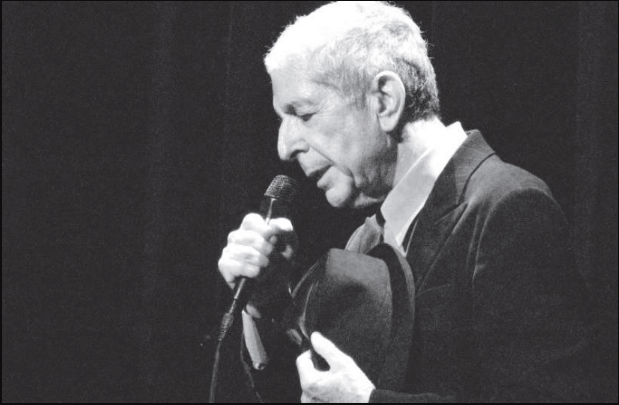December 9: Representing the National Ramah Tikvah Network at USCJ/Ruderman Inclusion Conference in Boston, MA.
Upcoming Projects
- November 12: Kosherfest (New Jersey)
- December 22-January 2: Birthright Israel Shorashim Aspergers Trip
- February 1-14: Kilimanjaro Climb with Access Israel (feel free to support our climb: https://charity.gofundme.com/o/en/campaign/howard-blas?fbclid=IwAR34mCq1gtAJB6uV6v4It-AbEGFHv2nnoLOAFBKwMmVQx2MneIn0pENY9aM
The Cantor Who Collaborated With Leonard Cohen
The original Article Published On The Jerusalem Post
Cohen’s father and great grandfather both served as president the Orthodox synagogue which Zelermyer affectionately refers to as “The Shaar.”
NEW YORK – “Hallelujah! I’m your man!”
That’s how Cantor Gideon Zelermyer responded to Leonard Cohen when the famed Canadian singer/songwriter asked him in 2015 to collaborate with him on a song.
Zelermyer, cantor for the past 16 years of Montreal’s Congregation Shaar Hashomayim in Westmount, Quebec, had a unique and unusual professional and personal relationship with the late Cohen. The two corresponded by email for 10 years before the request for a musical collaboration emerged, which wound up being “You Want it Darker,” the title song of Cohen’s Grammy Award-winning final album released in 2016.
“When I got the email from Cohen at six o’clock in the morning [to work on the album], I shouted, woke up my family and wrote him back: ‘Hallelujah! I’m your man!’” recalled Zelermyer in an interview with The Jerusalem Post, marking the third anniversary of Cohen’s death.

Zelermyer is a man of many talents and interests. He is a skilled musician, a self-described “serious opera lover” and the father of sons aged eight and 11. He is also affable, funny, well-connected in the Montreal cultural community and a huge sports fan. The Rhode Island-born and Connecticut-raised tenor still roots for the Boston Red Sox, the Celtics and the New England Patriots. However, Zelermyer proudly roots for the hometown hockey team, the Montreal Canadiens. His wife is from Montreal, and he recently became a Canadian citizen after living there for 18 years.Cohen’s father and great grandfather both served as president the Orthodox synagogue which Zelermyer affectionately refers to as “The Shaar.”
Zelermyer and his Shaar musical team didn’t know at first what Cohen expected of them. They received a rough track from Los Angeles of what would become “You Want it Darker” – with just Cohen’s voice. They sent back a few options of how the track might sound, recorded with his music director, Roï Azoulay, and the synagogue’s all-male choir. Zelermyer and Azoulay recorded different musical options to complement Cohen’s vocal track. After the songs were produced, Cohen thoughtfully sent Zelermyer a thank you note – and a self-portrait.
The single “You Want It Darker” was released on September 21, 2016. The album came out one month later. Sadly, Cohen died a few weeks later on November 7. Zelermyer officiated at a mainly secretive, private family funeral in Montreal. A month later, Cohen’s family brought Zelermyer and the Shaar choir to Los Angeles to sing at a memorial service.
While Cohen never spoke of death with Zelermyer, or indicated a sense that death was imminent, the cantor noted “He was talking about it his whole life.” Zelermyer felt the album “makes sense – to work through his feelings. The tone of the record didn’t surprise me – with the echoes of kaddish, and the words of Hineni. You see he is placing his destiny in the hands of something higher.”
Zelermyer did not have many in-person meetings with Cohen. The cantor reflects “I was physically in the same room with Leonard three times: once at a concert in Ottawa, in Los Angeles for the 2016 record release, and at his burial.”
The cantor recalled having “very brief conversations.” He fondly recalls their in person meeting in Los Angeles. “I brought him a gift – a Yom Kippur machzor [prayer book], which I found at Shaar, given to his late sister at her Hebrew school graduation.”
ZELERMYER WAS HONORED to attend the 2017 Grammy Awards Ceremony at Manhattan’s Madison Square Garden, where Cohen, Zelermyer and the synagogue choir were awarded a Grammy Award posthumously. Perhaps somewhat ironically, Cohen’s Grammy, and the accompanying “certificate of participation” awarded to the cantor and his team as vocal soloists, is in the Best Rock Performance category. The award is for “You Want It Darker,” the first track on Cohen’s 14th and final album of the same name.
“It’s an amazing, loving, beautiful tribute to an amazing life in music,” observed Zelermyer. “It is such a bittersweet closure that the first solo acknowledgment of an artistic statement of his by the Academy and at the same time he’s not around to enjoy it. But it’s a tremendous honor to his legacy, and certainly, for our city.”
At the 50th Grammy Awards in 2007, Cohen received his first career Grammy for Album Of The Year, as a featured artist on Herbie Hancock’s River: The Joni Letters. In 2010, Cohen received a lifetime achievement award from the Grammy academy. In 2017, Cohen’s You Want It Darker won the Canadian Juno Award for Album of the Year.
“It is still a tremendous source of honor for me and the Shaar, to play a small but significant role,” explained Zelermyer. “It is wonderful validation of why we maintain the tradition.” Zelermyer recalled an interview Cohen gave not long before his death where he explained why he wanted to work with a cantor and choir.
Cohen told the publication Le Dernier Empereur in an October 19, 2016, interview, “Even as a boy I loved their singing. It is what made compulsory synagogue attendance enjoyable. I’ve wanted to work with the cantor and the choir for a long time. The touring years interrupted this intention. On a secondary but still urgent note, there are times when you want to show the flag, when you want to indicate that there is nourishment to be had from this culture, that it is not entirely irrelevant to the present situation, that it does not serve a nation’s best interests to reject and despise it. This is more important in some countries than in others.”
Zelermyer added, “This is really unbelievable. It is such a special statement of validation—that there is something to be gleaned from this tradition.” He noted nostalgically that there are very few synagogue choirs in the world which meet weekly. The Shaar has proudly featured a weekly choir since 1887.
Zelermyer regularly shares Cohen’s kind words about cantors and choirs with young cantors. “I tell young cantors – when you read something like Cohen’s quote, it should be an inspiration to take what you do seriously – you never know how it will impact others.”
The cantor reflected on Cohen’s legacy, and on why he is loved and admired by people worldwide. “He appealed to the searcher. He appealed to the everyman type of dynamic.” Zelermyer noted that Cohen went through many phases in his spiritual life – “he was interested in Scientology, Eastern religions, but he always gravitated to the religion of his childhood, he was always interested in Judaism.”
His devoted fans continue to come to Montreal to get to know and experience Leonard Cohen. “There is a steady stream of people at Shaar on Saturdays-from Europe and all over – to see where he is from and what he is like. They want to see his house, and where he ate bagels. They are so respectful and so deferential. They want to understand. They continue to search, as Leonard did.”
A Father-and-son Israeli Duo Makes Its Mark On The World Of Mixed Martial Arts
The Original Article Published On The Jewish News Syndicate
While not nearly as popular as basketball, soccer, tennis or most other sports in Israel, mixed martial arts continues to grow in popularity.
What do U.S. President Donald Trump and Israeli fighter Haim Gozali have in common?
Both have experienced MMA (mixed martial arts) at New York City’s legendary Madison Square Garden. While Trump enjoyed the UFC (Ultimate Fighting Championship) event on a recent Saturday night (Nov. 2) from the spectator side of the octagon (ring), Gozali has twice fought in it. The 47-year-old and his son, Aviv, 18, are mixed martial-arts fighters and will be fighting on the same MMA card on Nov. 14 as part of Bellator 234 at Tel Aviv’s Menora Mivtachim Arena.
While not nearly as popular as basketball, soccer, tennis or most other sports in Israel, mixed martial arts continues to grow in popularity. In a phone interview with JNS from his home in Bat Yam, Israel, Haim Gozali observes, “In 2016, no one in Israel knew about MMA. Now, young fighters have a future.”
Gozali notes the steady rise in attendance at MMA fights in Israel. “The first year, 6,000 people came, then 7,000 the next year, then 9,000.” He proudly reports, “Now, when I walk on the streets, people know me and want to take a selfie!”
After three sellouts in Israel, Bellator MMA, which hosts events around the world in such locations as England, Japan, Ireland, Italy, and Hawaii, California and Connecticut in the United States, returns to Tel Aviv for matches that will feature the heavyweight main event between hard-hitting Sergei Kharitonov and former No. 1 contender Linton Vassell. The evening will also feature lightweights Roger Huerta vs. Sidney Outlaw, and Austin “The Gentleman” Vanderford vs. Grachik Bozinyan. Haim, a former Border Police officer, and Aviv will also fight that night.
‘I grew up in this world of MMA’
Haim Gozali has been fighting professionally since 1998. He got his start at an early age.
“When I was a kid, I watched ninja movies and wanted to BE a ninja,” he relates. He started taking karate lessons and saw his first UFC fight in his 20s. “I have to do that!” he recalled and began training with Renzo Gracie in the United States in 1995. Gozali, a welterweight with an 11-6 record (10 submissions, 1 knockout), became a fourth-degree black belt in Brazilian Jiu Jitsu black belt under Gracie. Gozali stands 5-feet-and-11-inches tall, weighs 170 pounds and is nicknamed “Batman” because of his collection of Batman comics, paraphernalia and tattoos.
He and Aviv train at the Body Shop in Los Angeles and also in Israel. Haim reports that his son started learning at the age of 3. Aviv began to show interest in the sport when he saw people come to train in the home gym with his father. “I put him in judo at age 3, and he started fighting at age 5.”
Aviv acknowledges the memory, adding, “I basically grew up in this world of MMA.”

Aviv (nicknamed “The King”), a lightweight at 6 feet and 155 pounds, made his MMA debut in November 2018 and has a 3-0 record. Each of his first three victories has come by way of first-round submission. He most recently defeated Eduard (“The Hunter”) Muravitskiy in August just 11 seconds into the fight; the submission is the fastest in Bellator MMA history.
Haim enjoys fighting and playfully notes, “I will do it until they tell me they have to bury me!” He says he is proud to represent Israel, saying, “I go with the Israeli flag everywhere.”
He has been warmly welcomed by Israeli Prime Minister Benjamin Netanyahu and was the first Israeli to fight in Madison Square Garden. “All the legends—[Muhammad] Ali, [Mike] Tyson, [Rocky] Marciano and me, Haim from Bat Yam, got to fight there.”
He considers this an important part of his legacy. In addition to fighting, Haim also works for Bellator, where he scouts out and signs new fighters, as well as produces matches in Israel. He also heads the Renzo Gracie Israel Academy in Bat Yam.
Haim says he feels fortunate to be able to spend so much time with his son. “We mostly live together. And it is nice when a father and son do and love the same thing.”
Aviv agrees, saying, “To train with my father, it’s the best feeling in the world. To learn from him and to laugh with him during training gives me a lot of confidence and a lot of small things to improve that no one can see.”
He adds that he’s excited to fight on the same card as his father—and confident, too. “I fought with my father in the same card last year, but this time, both of us are going to win! He’s 47, and this is his last fight now, so I’m continuing the legacy.”
Tickets for the Tel Aviv fight are available at: www.eventim.co.il/ and www.bellator.com/. It will also air on Paramount Network across the United States on Nov. 15 at 9 p.m. Eastern Standard Time.



